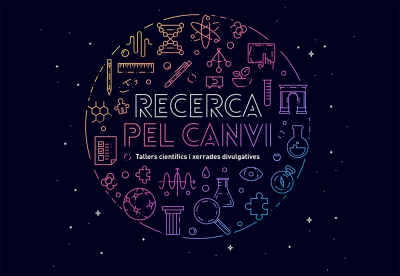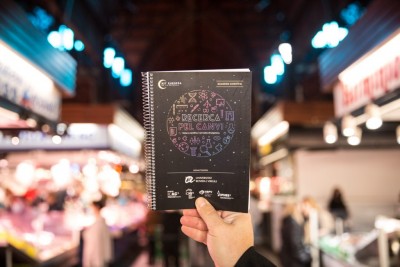
Science will once again fill the streets, markets, and educational centers of the Tarragona area.
The fourth edition of the European Research Night recovers the face-to-face activities in an edition still marked by the restrictions derived from the pandemic.
The Rovira i Virgili University coordinates this activity in the regions of Tarragona; together with the Catalan Institute of Classical Archeology (ICAC), the Catalan Institute of Chemical Research (ICIQ), the Pere Virgili Health Research Institute (IISPV), and the Catalan Institute of Human Paleoecology and Social Evolution (IPHES). A hundred researchers from these institutions participate in this great public event of scientific dissemination, which takes place every year in 300 cities in 30 European countries simultaneously.
The objectives of this activity, promoted by the European Commission since 2005, are to promote public recognition of the research community, publicize the importance of its work for society, show that research in all its disciplines is fascinating, and explain and show the research and the researchers behind it.
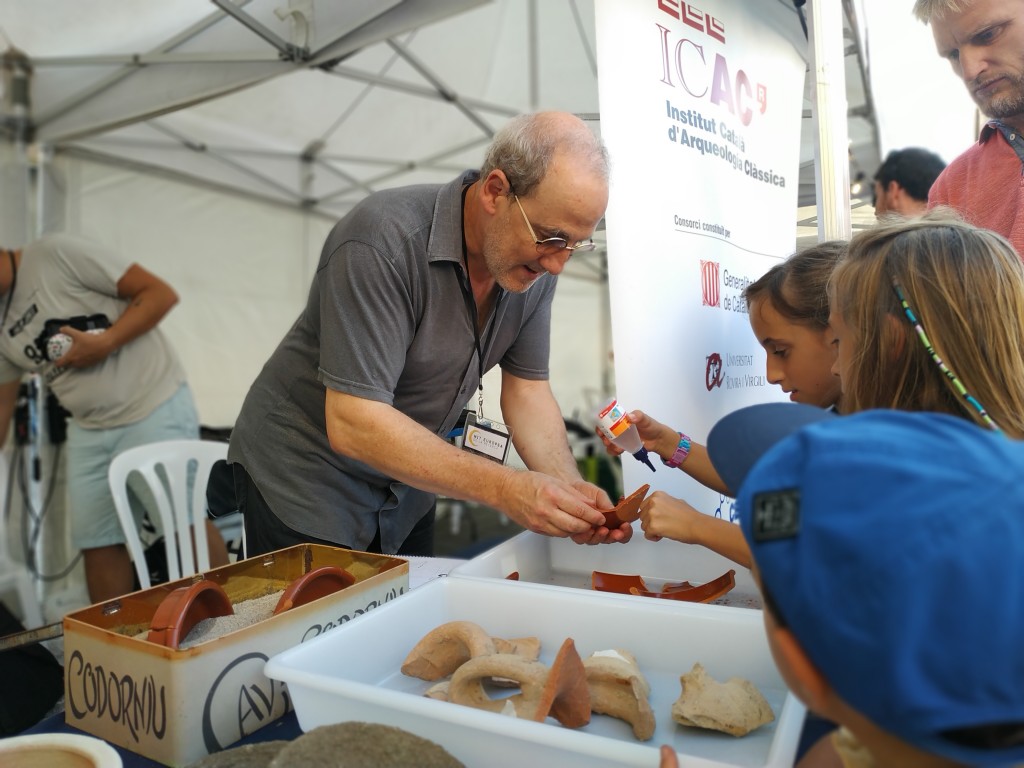
Scientific workshops in Tarragona
With the slogan “Research for change”, the activities planned for this edition reach all types of public. The central proposal is the scientific workshops fair that will be held in the Corsini square, in Tarragona. About thirty experimental proposals for family audiences of different ages will occupy this space throughout the afternoon of Friday, September 24. In addition, the European Corner space will be set up, where researchers who have previously registered will be able to present their research to the general public.
The ICAC takes part in the scientific workshops fair in the Corsini square with four proposals:
- “TarrAcro-polis, a scientific journey of 2,000 years of history”. Using 3D model construction technologies, we can take a virtual tour of the acropolis of Tárraco and observe the main Roman constructions of this unique location. Take this opportunity to get to know one of the historical and architectural phenomena of the city of Tarragona.
- “Without a car or navigator, on the routes of the Roman world”. Do you think that it takes you too long to travel to go to work, to shop or to the beach? Getting around on the Roman roads was a whole world! A maps game using digital cartography and the digitization of Roman roads. By ICAC researcher Pau de Soto.
- “Your big Greek wedding”. In the ancient Greek world, a wedding was a special moment for the whole family. Decorating and dressing the bride was a long process in which the whole family participated. In this workshop, you will see how the bride bathed, dressed, and made up on her wedding day. To do this, you will learn how makeup was done in ancient times, what colors the bride used to wear, and what jewelry and hairstyles were in fashion. By ICAC postdoc researcher Elena Duce.
- “What woman researchers do you know?”. Take this opportunity to discover in a few minutes some of the most important women in history. While playing we will put the names on the faces, and learn about the main contributions they have made to science. By predoc ICAC research Maria Rueda.
Scientific talks
Science will also reach high school students. From September 20 to 24, researchers from the URV and the four research institutes will give scientific talks at the institutes that have requested it.
In the case of the ICAC, GIAP researcher Lídia Colominas will give the talk “Archeology and inequalities”, in which she will explain what the profession of archeology consists of, establishing a relation between gender dynamics in ancient societies with our current society. An opportunity to raise awareness about gender inequality in science and promote the scientific vocation.
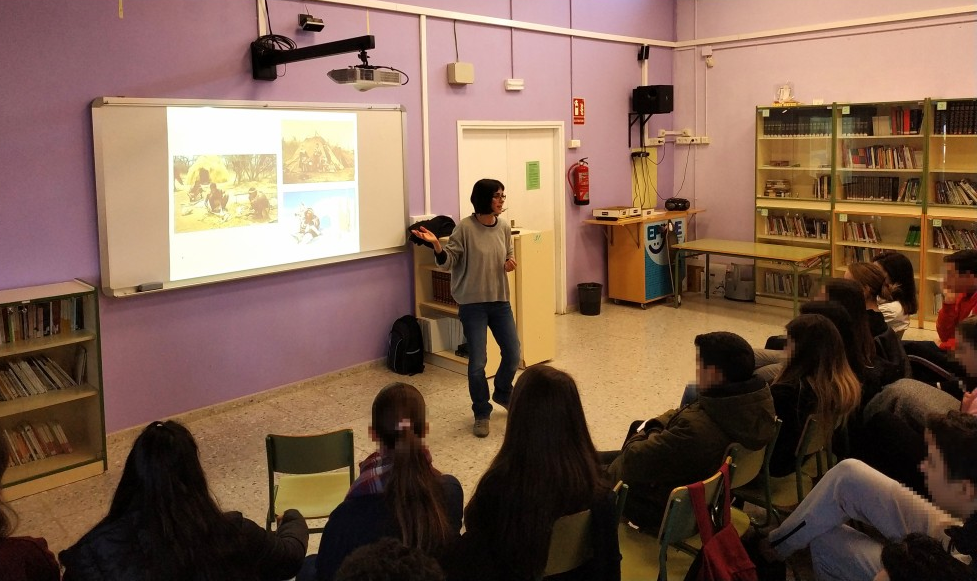
Other activities
As in previous editions, a scientific micro-talks session has also been scheduled, which will be held in Reus on Friday, September 17 at 7:00 p.m., under the coordination of the IISPV research institute. Besides, as a closing activity of the European Research Night celebration, on Saturday, September 25 a scientific route on Antoni de Martí i Franquès will be held in Tarragona (with prior registration).
Check all the details of these and other activities on the website of the European Night of Research in the Tarragona area.
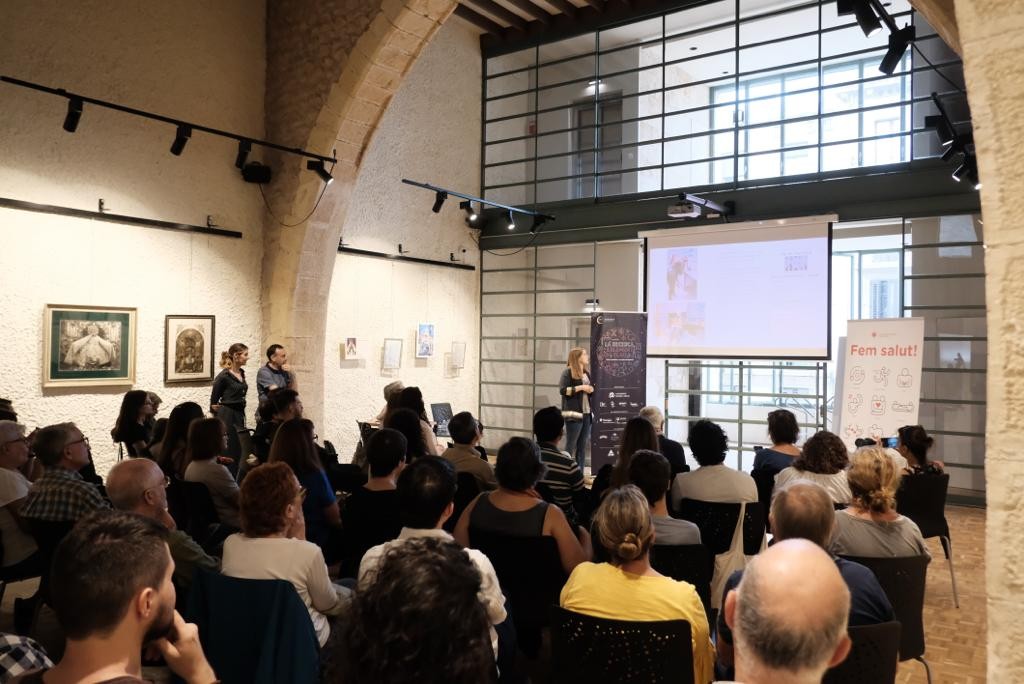
A joint project in Catalonia
The European Researchers Night is a joint project at Catalan level. Besides the URV, in the Catalan European European Researchers’ Night there is the participation of the University of Girona (the leading institution in the Catalan project), the University of Barcelona, the Autonomous University of Barcelona, the University of Lleida, the research centre ISGlobal and, starting this 2021 edition, the University of Vic. The proposal of the European Researchers Night in Catalonia got four years ago recognition as an Associated Night, awarded by the European Union.
